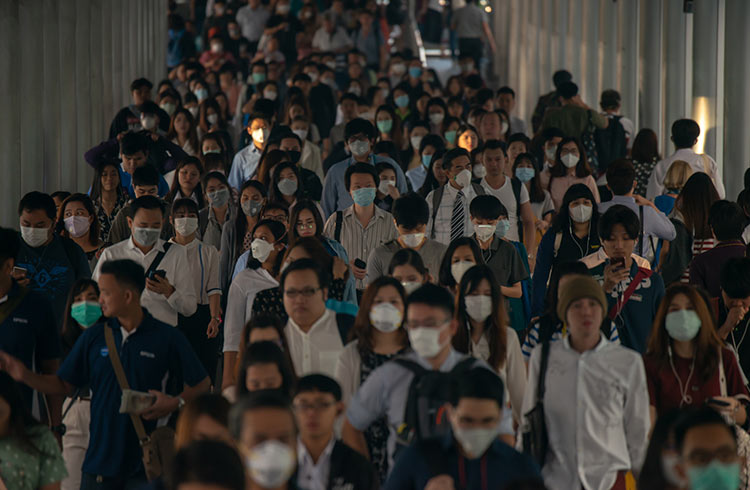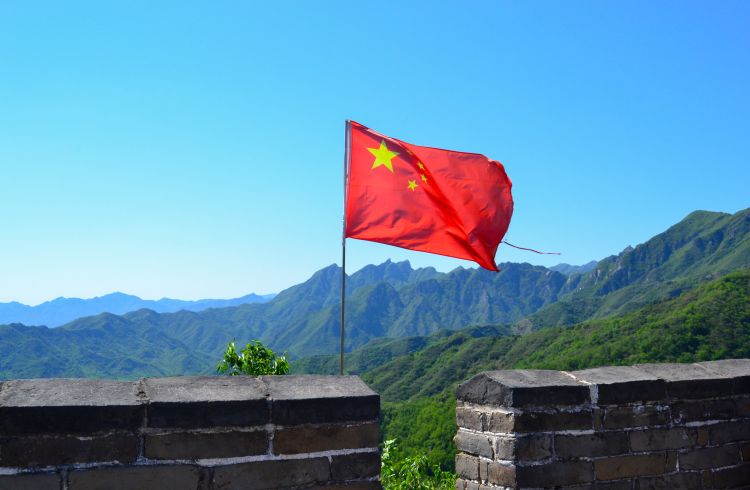Should You Travel During a Pandemic?
Michael Howard shares his advice on extra travel safety and health precautions you should take during an epidemic or pandemic.
 Photo © Getty Images/Domepitipat
Photo © Getty Images/Domepitipat
When something major happens on the world stage, be it an airline disaster, a terrorist attack, or the threat of disease, it's hard to know whether to continue traveling or not. It's always important to keep a healthy sense of perspective and take sensible precautions. But right now, it's also important to bear in mind that this coronavirus (COVID-19) pandemic is not a typical threat.
- What we know about this novel coronavirus
- How to avoid contamination
- What not to do right now during the COVID-19 outbreak
- Is it safe to travel during a pandemic?
- Listen to the World Nomads Podcast: COVID-19
What we know about COVID-19
The highly contagious 2019-Novel Coronavirus, aka COVID-19, was first identified in Wuhan City, Hubei Province, China in December 2019. On Wednesday 11 March, 2020 the World Health Organization declared COVID-19 a pandemic.
Unfortunately, COVID-19 is more insidious than some of its predecessors. Experts now know COVID-19 to be airborne, meaning very fine droplets containing the virus can remain suspended in the air for minutes or hours. People can become infected by breathing in these droplets. Keeping a distance of six feet is usually sufficient to protect against the larger droplets expelled by coughs and sneezes, but spending time in an enclosed space with others increases the possiblitiy of aerosol transmission from smaller droplets. Bear in mind that people who are infected but show no symptoms can still spread COVID-19. It's also possible to catch it by touching a surface that has the virus on it, and then touching your own nose, mouth, or eyes.
Since this article was first written, the pandemic has widely disrupted travel and caused more than 4.5 million deaths worldwide. But there is positive news on the horizon. As of this update (August, 2021), a number of vaccines have been approved for use, and vaccine rollouts have begun around the globe.
However, it will be several more months before the vaccine is widely available to everyone, and many more months or even years before the majority of the world's population is immunized.
How to avoid catching a virus
The best way to avoid catching COVID-19 is to get vaccinated, if that option is available to you. It's also very important to wear a face mask when in public spaces, especially indoors, and on all forms of public transit (even if you're fully vaccinated). Well-fitting face masks made from proper materials have been shown to be effective at preventing the spread of the virus.
Keep at least six feet of space between yourself and others whenever possible.
Routine handwashing, frequent application of hand sanitizer, and a good supply of hand wipes can effectively limit contact contamination.
While traveling, be extremely careful about what you touch. Be aware of handgrips, handrails, and poles, in buses, elevators, escalators, shuttles, subways, taxis, trams, trolleys, and stairways. Avoid touching counters at ticket stands, information booths, airport security corridors, seating areas, and lounges. Wash your hands for a long count to 20. Apply hand sanitizer often, and liberally. Avoid touching your nose, mouth, eyes – in fact, avoid touching your face entirely.
What not to do right now during the coronavirus outbreak
- Avoid travel to places experiencing major outbreaks of COVID-19 or with low rates of vaccination
- Avoid large gatherings and crowded public spaces whenever possible
- Avoid planes, trains, boats, and buses that originate from places with outbreaks of COVID-19. Not forever – but certainly for the foreseeable future.
Is it safe to travel during a pandemic?
Travelers travel – it’s what they do. But even if you personally are not in a high-risk category, and thus are more likely to recover from the virus if infected, you have the potential to infect others. There is also a genuine risk of being stranded if a country closes its borders or cancels all international flights. Quarantine procedures help isolate recent arrivals from suspect urban centers and countries, and some destinations require negative COVID-19 tests or proof of vaccination for entry, but still.
The US-based Centers for Disease Control and Prevention recommends avoiding international travel unless you're fully vaccinated. If you do travel, be sure to follow all safety requirements at your destination. It's also a good idea (even if it's not a requirement) to get tested for COVID-19 before you travel to avoid the possibility of becoming ill on your trip or spreading the virus to others.
Follow the WHO’s advice on using face masks, and keep in mind masks are most effective when used in combination with frequent hand-cleaning. With new, more infectious strains of the virus being detected in areas around the globe, wearing two masks (a surgical mask topped by a cloth mask) is a wise precaution. Be careful while removing and disposing of soiled face masks (use the elastic bands or strings and avoid touching the pleated front).
Throwing money at travel accommodations through First Class, Business Class – even upgraded Economy – will increase your personal space. If you do travel Economy, do not despair. Many airlines are installing more effective air filtration and filtering systems, and most require all passengers to wear face masks (you should wear one in any case).
Do not pet or touch animals.
Avoid eating raw or undercooked food when abroad – and avoid “wet markets” where animals are slaughtered, dressed, or butchered. Avoid “finger food” in outside markets, unless you can sanitize your fingers, and reserve “family style” dining for family. Dine outdoors whenever possible.
Meeting new people is a big part of travel. Shake hands with enthusiasm if you wish, but inconspicuously apply hand sanitizer before touching your face or food. Avoid kissing strangers (lips or cheeks or even hands) and avoid affectionate hugging. Embrace travel – not the latest outbreak.
And, while you are being smart about it, check your government’s travel advisory before booking a trip or taking off – its advice may affect your travel insurance coverage in the case of an outbreak or increase in risk to your safety.
Listen to the World Nomads Podcast: COVID-19
In this episode, we address FAQs about the virus and how it affects your travel and tips to survive self-isolation.
Related articles
Simple and flexible travel insurance
You can buy at home or while traveling, and claim online from anywhere in the world. With 150+ adventure activities covered and 24/7 emergency assistance.
Get a quote

No Comments